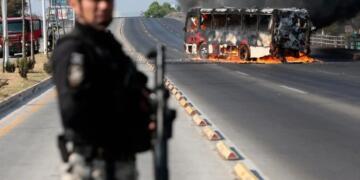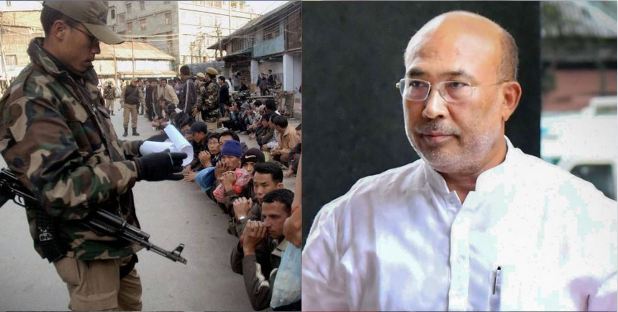Recent remarks by Manipur Chief Minister N. Biren Singh have elated the people of Manipur, as they see, for the first time in over 40 years, the hope of their state being freed from the Armed Forces Special Powers Act (AFSPA) – a sweeping yet necessary legislative directive granting tremendous powers and autonomy to the country’s armed forces to operate in disturbed areas.
Mind you, AFSPA has met been with the stiffest of resistance in Manipur, and indications of the state now being freed from it demonstrate how the BJP government of the state has been able to curb the insurgency and militancy problem of Manipur.
Replying to the Governor’s address to the State Assembly on Thursday, the Manipur CM said that his government has been urging the Centre to withdraw the Armed Forces Special Powers Act (AFSPA) from the state as the law-and-order situation has improved significantly. “We have been urging the central government to withdraw AFSPA as the law-and-order situation in Manipur has improved considerably. We are ready to take adequate measures to ensure it is rolled back,” CM Biren said.
The statement by the Manipur CM has most definitely indicated that the state government has now shifted its focus from an eternal cycle of AFSPA extension to a decisive phase, where Manipur is declared a normal area and the act is suspended.
Currently, AFSPA is implemented in UT of Jammu & Kashmir, Assam, Nagaland, and parts of Arunachal Pradesh and Manipur. According to the Act, the armed forces are empowered to open fire, enter and search without a warrant, and arrest any person who has committed a cognisable offence, all while having immunity from being prosecuted.
With effect from December 1, 2020, the Manipur government had extended the ‘Disturbed Area’ status to all parts of the state, except in Imphal Municipal area, for one more year. The ‘Disturbed Area’ tag lays the foundation for AFSPA to be implemented.
Although the declaration of entire Manipur, barring the capital region as a disturbed area is a purely routine exercise, the important development really is that the BJP government of the state is persuading the MHA to revoke AFSPA from Manipur. The fact that Manipur, under a BJP government, has taken great strides in reducing insurgent activities is no secret. In 2016, a total of 233 insurgency-related incidents had been reported. This number fell to 167 in the subsequent year, and in 2018, dropped to 127.
Only last year, CM Biren Singh had remarked that although the situation in Manipur had largely improved, it was not conducive for AFSPA to be removed. Now, in 2021, the Manipur CM revealing that his government is in talks with the Centre to get AFSPA removed indicates that a positive decision to the same effect is likely very soon.
Irom Sharmila, largely known as the ‘Iron Lady of Manipur’ has been the state’s face when it comes to resisting AFSPA and demanding its revocation. For 16 years, Sharmila observed a hunger strike under police custody and was force-fed through a Ryles tube. Sharmila rose to stardom after the November 2000 incident, where close to 10 civilians were allegedly gunned down by the 8th Assam Rifles at Malom Makha Leikai. Agitating since then, Sharmila retired from activism when, during the 2017 assembly polls of the state, she garnered a meagre 90 votes.
The anti-AFSPA movement peaked in Manipur in 2004, when AFSPA was lifted from seven assembly segments of Imphal municipal areas following massive public protests. The seven assembly constituencies were, Keishamthong, Sagolband, Singjamei, Thangmeiband, Yaiskul, Uripok and Wangkhei.
The BJP governments, both in the state and the Centre would be keen to revoke AFSPA, as that would be in line with the saffron party’s aims of developing the Northeast as a whole. Revocation of AFSPA from Manipur would very well stand testimony to the tectonic changes being made by the BJP in not just ridding the Northeast of insurgency, but also bringing it at par with the rest of the country.


























